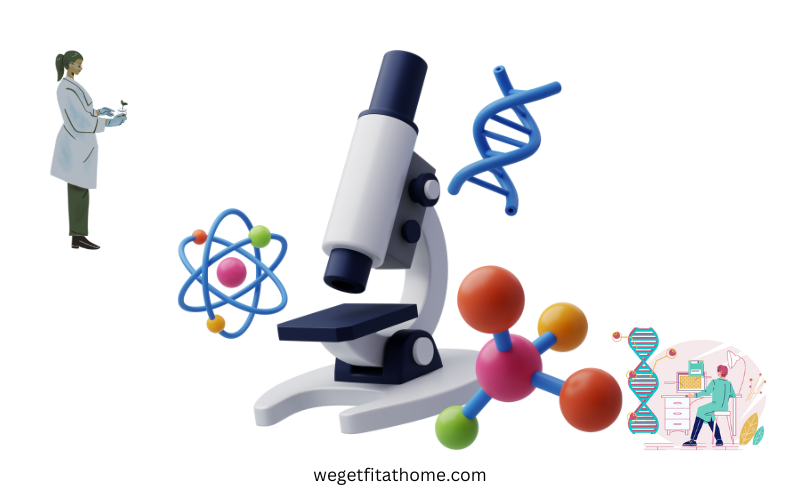When it comes to understanding your health, the best genetic testing kit can unlock valuable insights about your body and its needs. Genetic testing can provide information about inherited traits, potential health risks, and even lifestyle recommendations tailored to your unique DNA. But with so many options available, choosing the right kit can feel overwhelming. Let’s explore the benefits of genetic testing, what the best kit is, and why it’s worth considering.
What Are the Benefits of Genetic Testing?
Genetic testing is more than just a peek into your ancestry—it’s a tool that empowers you to take charge of your health. Here’s how:
1. Personalized Health Insights
Genetic testing can reveal predispositions to certain conditions like heart disease, diabetes, or certain cancers. This knowledge allows you to make lifestyle or medical decisions to minimize risks.
2. Medication Compatibility
Pharma-co-genomic tests (a type of genetic testing) identify how your body processes medications, ensuring the treatments you take are both safe and effective.
3. Family Planning
Understanding your genetic makeup can help assess risks of passing specific genetic conditions to future generations.
4. Dietary and Fitness Guidance
Some genetic testing kits provide customized advice on nutrition and exercise based on your DNA, making it easier to create sustainable habits.
5. Early Detection and Prevention
Detecting potential health issues before symptoms arise gives you a head start in managing or preventing diseases.
How to Choose the Best Genetic Testing Kit
Not all genetic testing kits are created equal. Here are factors to consider when choosing the best one:
1. Comprehensive Reports
Look for a kit that provides actionable health insights, not just ancestry data. Kits like 23andMe Health + Ancestry and MyHeritage DNA Health offer detailed health-related results.
2. Data Privacy
Ensure the company has strong privacy policies. Companies like Invitae and Nebula Genomics allow users to retain full control of their genetic data.
3. Medical Support
You can choose kits that include consultations with genetic counselors or medical professionals to interpret the results accurately.
4. Price and Accessibility
Some kits, like 23andMe, offer affordable options with reliable insights, while others, like Invitae, may require physician involvement and can be more expensive.
This post contains affiliate links. If you click on and purchase through one of those links, you won’t pay a penny more, but we’ll get a small commission, which helps keep our website operating. Thanks! As an Amazon Associate, I earn from qualifying purchases.
23andMe Health + Ancestry Service
Get a more complete picture of your health with insights from your genetic data.
Recommended: 23andMe Health + Ancestry
The 23andMe Health + Ancestry kit stands out as one of the best genetic testing kits for health insights. Here’s why:
Pros
- Comprehensive Reports: Offers insights on over 50 health conditions and traits.
- Ease of Use: Simple saliva sample collection process.
- Data Security: Transparent privacy policies ensure your information is safe.
- FDA Approval: Some health reports are authorized by the FDA, adding credibility.
Cons
- Does not provide information on all possible genetic conditions.
- May require follow-up with healthcare professionals for detailed interpretation.
- Coping with Emotional Challenges of Genetic Test Results
How Genetic Testing Can Improve Your Health
1. Proactive Healthcare
With insights from genetic testing, you can adopt a proactive approach to health. For instance, if you’re predisposed to high cholesterol, you can make dietary changes or consult a doctor early.
2. Empowerment Through Knowledge
Knowing your risks or predispositions reduces uncertainty and helps you feel in control of your health.
3. Informed Discussions with Doctors
Your genetic test results can guide more personalized conversations with your healthcare provider, leading to tailored treatments or lifestyle adjustments.
Some Things to Consider
1. Accuracy Compared to Medical-Grade Tests
While the best genetic testing kits provide convenient insights into your health, their accuracy may not match that of medical-grade tests performed through your doctor.
Clinical genetic tests are conducted in certified labs under strict guidelines and are often more comprehensive.
Home testing kits, on the other hand, analyze only specific parts of your DNA and may miss crucial genetic markers.
This difference in depth and precision means that results from at-home tests should be viewed as a starting point, not a definitive diagnosis or complete health analysis.
2. Difficulty Understanding Results
Genetic test results often use technical language and present risks in percentages or relative terms. This can be confusing without a healthcare professional’s interpretation.
For example, a result indicating a 20% increased risk for a condition doesn’t necessarily mean you’ll develop it, but understanding what that figure means in context is key.
Without guidance, users might misinterpret their results, leading to unnecessary anxiety or false reassurance.
Many genetic testing companies now offer optional consultations with genetic counselors, which can help clarify the findings and suggest actionable steps.
3. Up-selling Diet and Fitness Products
Many genetic testing companies expand beyond health insights to market personalized diet plans, supplements, or fitness programs based on your DNA results.
These offers may seem tailored to you. However, they often rely on limited genetic data and generalized assumptions. They may not rely on scientifically validated methods.
Consumers should approach such up-selling with caution, as these products are not always proven to deliver the promised results.
Focus on evidence-based guidance from a qualified nutritionist or fitness expert if you want personalized health strategies.
4. Legal and Privacy Concerns
One of the biggest concerns with at-home genetic testing is how your data is handled.
Even companies with strict privacy policies may share de-identified data with researchers or third parties.
Additionally, laws governing genetic data protection vary by country. It’s essential to know your rights before submitting your DNA.
Some users worry about future implications, such as their data being used in ways they didn’t consent to or being accessed by law enforcement.
Always review a company’s privacy policy thoroughly and consider opting out of data sharing if possible. Protecting your genetic information is as important as the health insights it provides.

Coping with Emotional Challenges of Genetic Test Results
Genetic Testing and Your Health
Genetic testing can reveal sensitive information about your health and family history. This may be emotionally challenging for you to process.
For instance, discovering that you carry a gene associated with a serious condition. The thought of something like Alzheimer’s disease or cancer, might leave you feeling anxious or overwhelmed even if the risk is not definitive.
This information can alter how you view your health and future. You may have feelings of uncertainty or fear about what steps to take next.
Family Relationships
Additionally, genetic testing can uncover unexpected familial relationships. You may find unknown siblings or a discrepancy in parentage.
While this aspect of testing can be intriguing, it may also lead to complex emotions or strain family dynamics.
Some people find it difficult to reconcile these revelations with their personal histories, particularly if they were unprepared for such outcomes.
It’s also worth noting that some individuals may feel a sense of guilt or responsibility if they discover they carry a hereditary condition. They may worry that it could be passed to their children.
This can complicate decisions about family planning or whether to share these results with loved ones.
Open communication and support from genetic counselors can help individuals navigate these emotions.
The Importance of Being Prepared
Understanding that genetic testing has the potential to deliver emotionally charged information is essential before taking a test.
Preparing yourself for all possible outcomes and seeking professional guidance can make the experience more manageable and ensure you take informed, thoughtful actions based on the results.
Wrapping It Up
The best genetic testing kit, such as 23andMe Health + Ancestry, provides valuable insights into your health and empowers you to make informed decisions.
From understanding potential health risks to creating a personalized wellness plan, genetic testing is a step toward proactive and informed living.
Taking care of your health has never been easier. Investing in the best genetic testing kit could be the key to a longer, healthier life.
As an Amazon Associate, I earn from qualifying purchases.
23andMe Health + Ancestry Service
Get a more complete picture of your health with insights from your genetic data.
Disclaimer: If you have any concerns or questions about your health, you should always consult with a physician or other healthcare professional. No content on this site should be substituted for direct medical advice from your doctor or other qualified healthcare practitioner. The information contained here is for informational purposes only. It is from my research and personal experience.
Related Posts
How to Slow Aging – The Secret of Tiny Telomeres
Anti Aging Secrets Around the World
13 Healthy Habits for the Heart: a Heartfelt Journey to Wellness
The Power of Foods that Lengthen Telomeres
Sources:
- “Genetic Testing: What You Need to Know” – Mayo Clinic
- “Personalized Medicine and Genetic Testing” – National Human Genome Research Institute
- “23andMe: Health + Ancestry Service” – 23andMe Official Site

